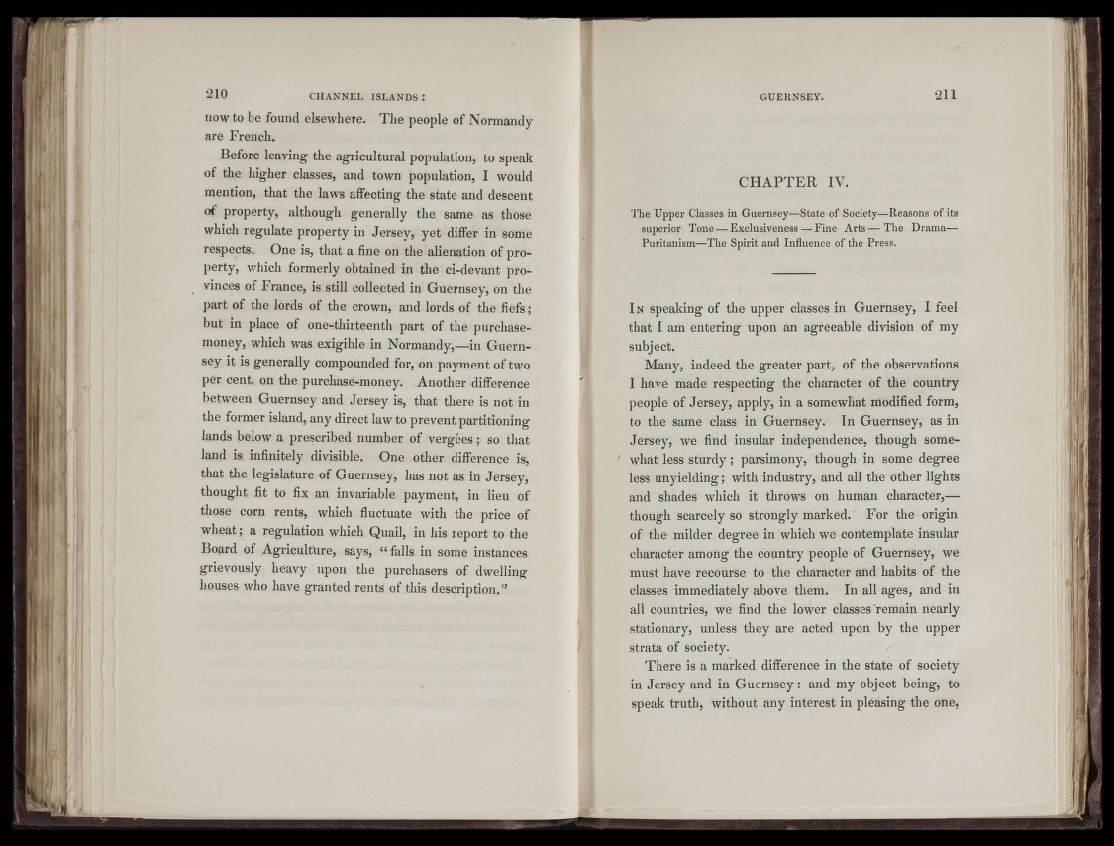
*■ r
* li
E
‘ t i.'
vM' a
■E Ü
■ ifT 'l:
now to be found elsewhere. The people of Normandy
are French.
Before leaving the agricultural population, to speak
of the higher classes, and town population, I would
mention, that the laws affecting the state and descent
property, although generally the same as those
which regulate property in Jersey, yet differ in some
respects. One is, that a fine on the alienation of property,
which formerly obtained in the ci-devant pro-
vinces of France, is still collected in Guernsey, on the
part of the lords of the crown, and lords of the fiefs ;
but in place of one-thirteenth part of the purchase-
money, which was exigible in Normandy,—in Guernsey
it is generally compounded for, on payment of two
per cent, on the purchase-money. Another difference
between Guernsey and Jersey is, that there is not in
the former island, any direct law to prevent partitioning
lands below a prescribed number of vergées ; so that
land is infinitely divisible. One other difference is,
that the legislature of Guernsey, has not as in Jersey,
thought fit to fix an invariable payment, in lieu of
those corn rents, which fiuctuate with the price of
wheat ; a regulation which Quail, in his report to the
Board of Agriculture, says, “ falls in some instances
grievously heavy upon the purchasers of dwelling
houses who have granted rents of this description.”
C H A P T FR IV.
The Upper Classes in Guernsey—State of Society—Reasons of its
superior Tone — Exclusiveness — Fine Arts— The Drama—
Puritanism—The Spirit and Influence of the Press.
I n speaking of the upper classes in Guernsey, I feel
that I am entering upon an agreeable division of my
subject.
Many, indeed the greater part, of the observations
I have made respecting the character of the country
people of Jersey, apply, in a somewhat modified form,
to the same class in Guernsey. In Guernsey, as in
Jersey, we find insular independence, though somewhat
less sturdy ; parsimony, though in some degree
less unyielding ; with industry, and all the other lights
and shades which it throws on human character,—
though scarcely so strongly marked. For the origin
of the milder degree in which we contemplate insular
character among the country people of Guernsey, we
must have recourse to the character and habits of the
classes immediately above them. In all ages, and in
all countries, we find the lower classes remain nearly
stationary, unless they are acted upon by the upper
strata of society.
There is a marked difference in the state of society